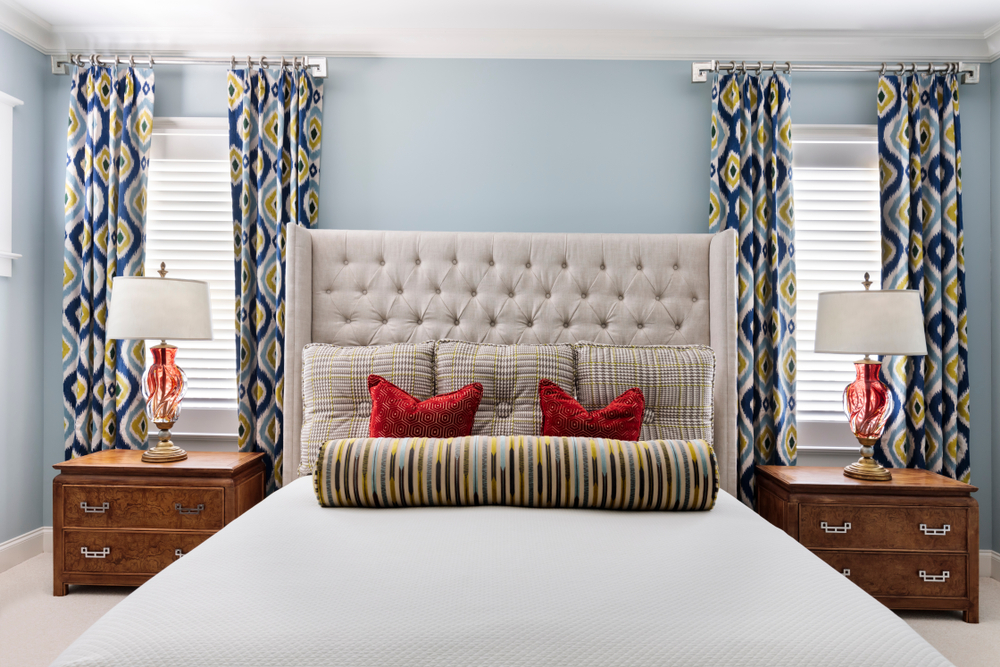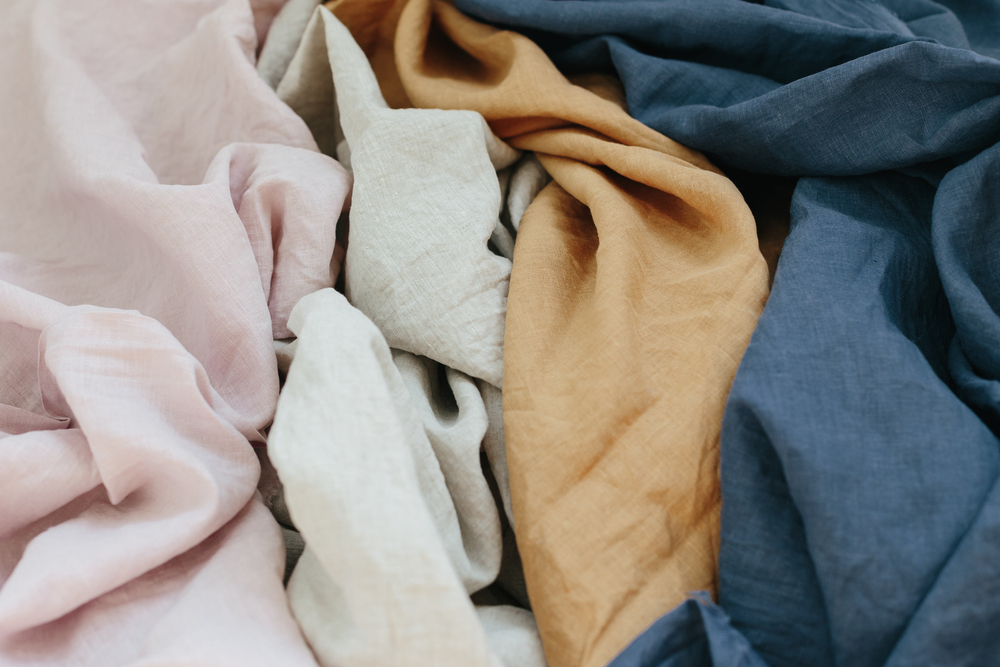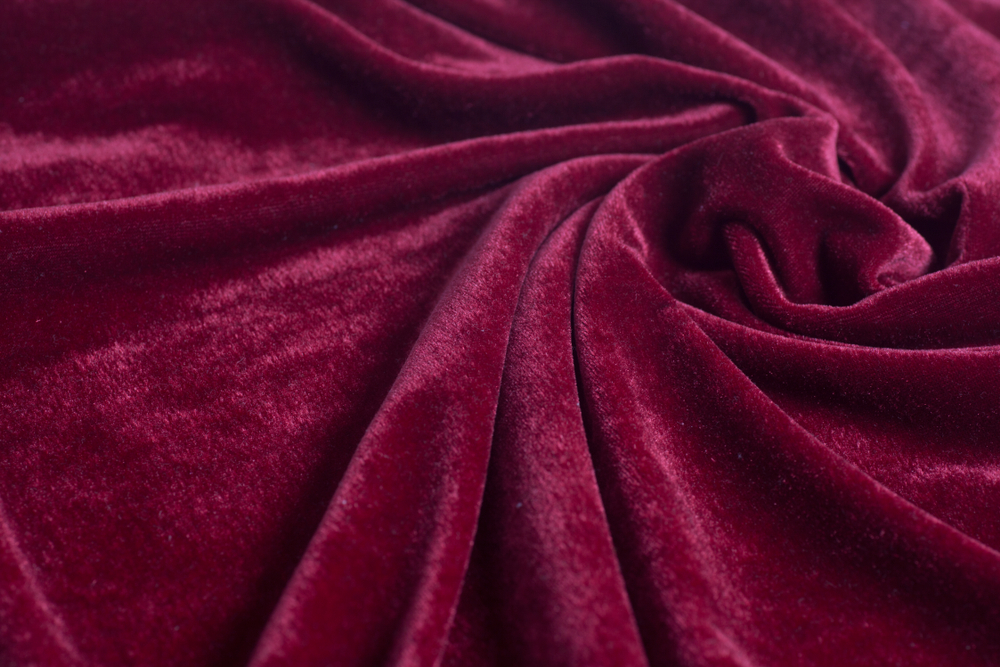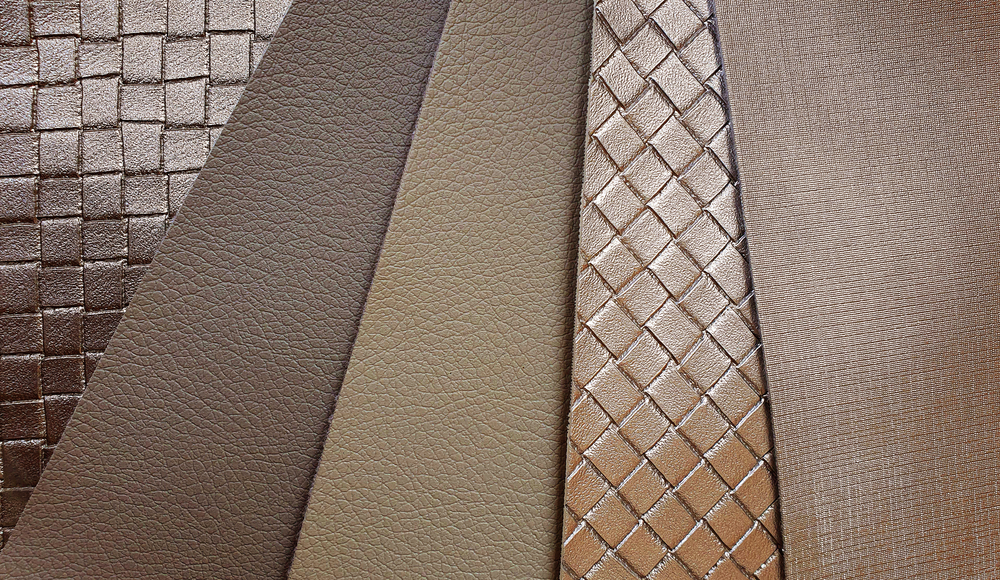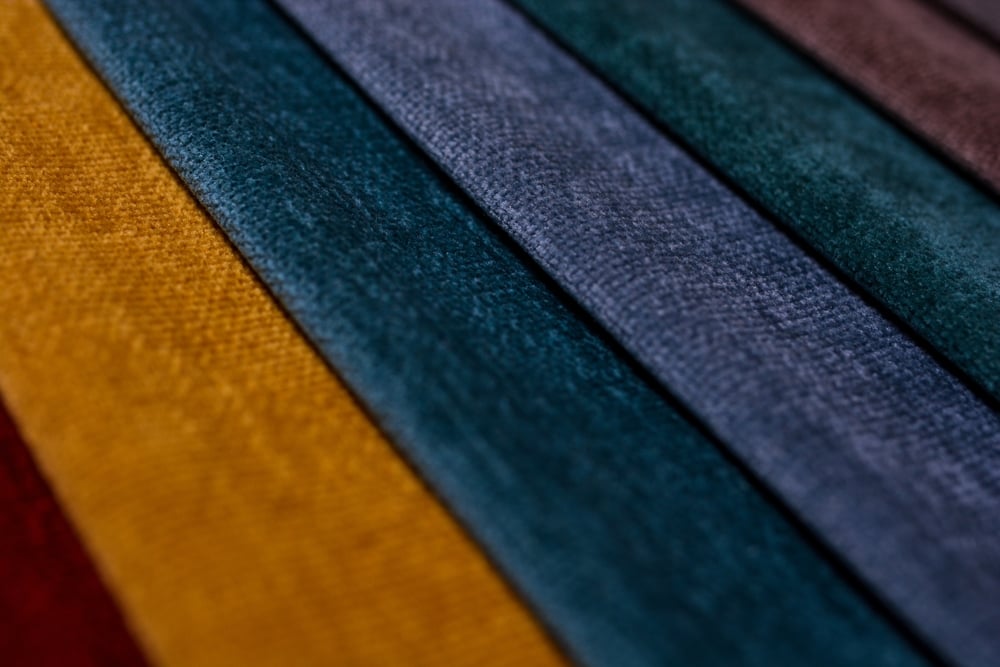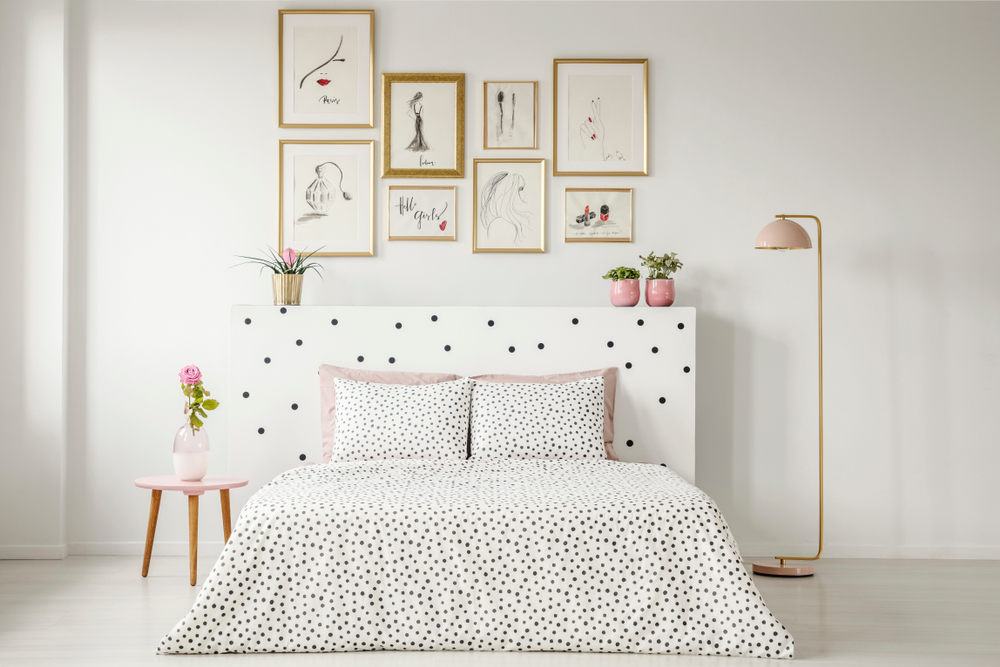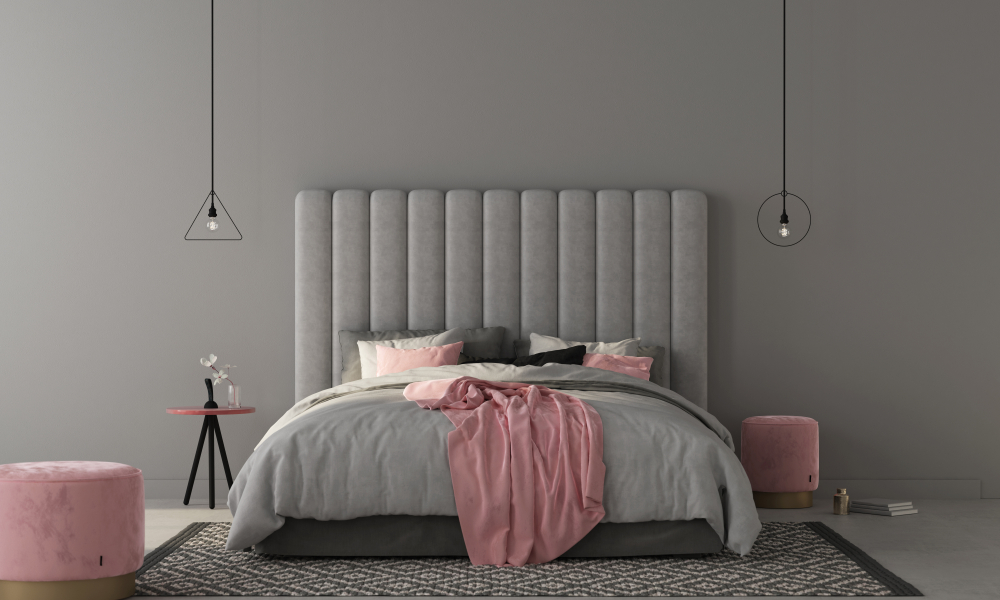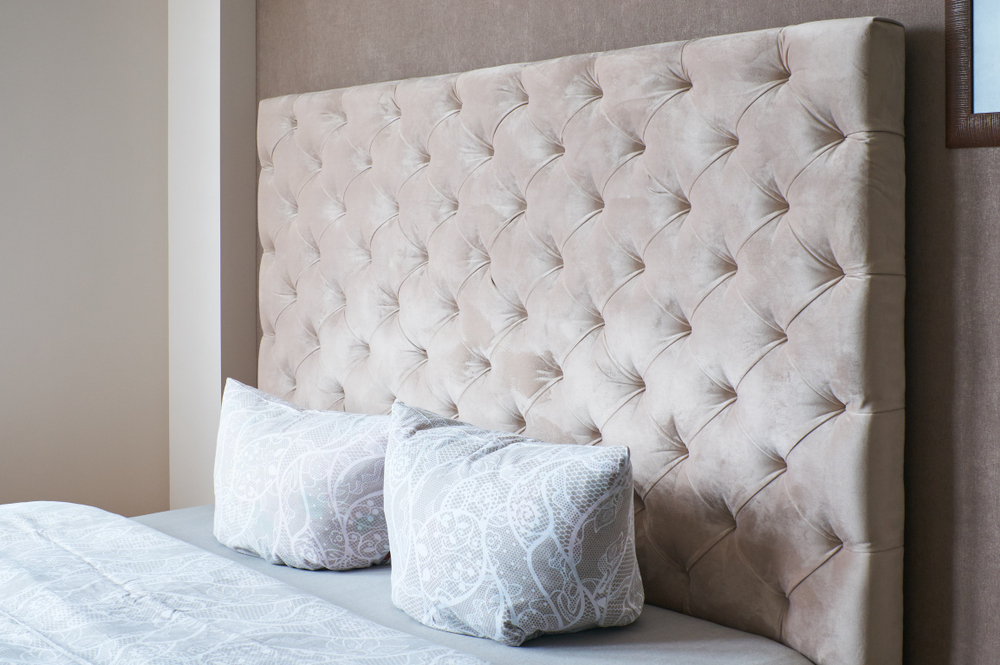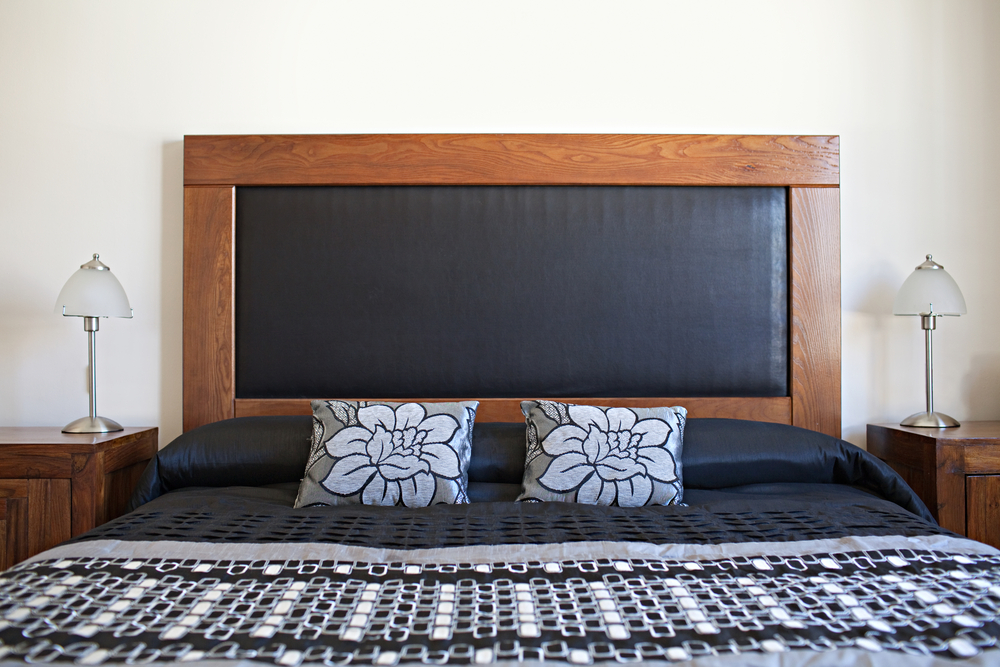The usefulness of headboards goes beyond their aesthetic appeal. They offer support to the bed, protect the wall from dents and abrasions, and some even offer extra storage space. Most importantly, they act as a buffer between your head or back and the cold, hard wall. As such, a headboard is a luxurious yet valuable accessory for your bed.

That being said, choosing the right upholstery material, pattern, or design for headboards may seem like an overwhelming choice. If you are a fan of form and function, the following upholstery materials for the headboard will cater to your tastes.
Best Upholstery Materials for the Headboard
Let’s begin with the best upholstery materials for the headboard:
Linen
Linen is easily the most comfortable and hassle-free upholstery material for your headboard. Its tight weave combines long-term strength and freshness, making it the perfect choice among natural fabrics. One can say it is almost a classic that never goes out of style, use, and fashion! No wonder it was once used as currency in ancient Egypt.
| Pros | Cons |
| Easy to clean and wash | Is prone to staining |
| Highly durable and sustainable | Can be expensive |
| Anti-microbial and hypoallergenic | Wears out under direct sunlight |
| Breathable with comfortable skin-feel | Prone to wrinkling |
| Moisture-resistant |
Velvet
Velvet is singularly one of the most popular upholstery materials for the headboard. The fabric, which is a blend of nylon, cotton, and silk lends a royal look and feel to the headboard and makes your bedroom look lavish. And given its vibrance and versatility, incorporating velvet within your decor is effortless.
| Pros | Cons |
| Soft and luxurious texture | Tough to clean and maintain |
| Excellent aesthetic value | Undergoes rapid wear and tear |
| Can insulate cold and heat | Attracts allergens like dust, pet hair, etc. |
| Comes in a variety of colours to match the decor |
Leatherette
Leatherette, or faux leather, trails velvet closely as one of the most popular upholstery materials for the headboard. It is a lot cheaper than actual leather and animal-friendly as well, so it won’t weigh on your pockets or your conscience. At the same time, you can add a touch of high-end sophistication to your bedroom.
| Pros | Cons |
| Offers a sleek and elegant look | Is not breathable |
| Is hypoallergenic | Sticks to the skin and is generally uncomfortable |
| Resistant to stain | Prone to scratches and scuff marks |
| Cost-effective | May crack or split with time |
| Does not stink | Available in limited colours |
Chenille
Chenille is a soft, elegant, and durable synthetic fabric procured by combining cotton, rayon, and polyester fibres. Its characteristic fuzziness adds comfort and texture to your bedroom. And despite its appearance, chenille is extremely durable – so much so that you can think of it as a fitting alternative to velvet!
| Pros | Cons |
| Creatively versatile to meet any kind of decor | Prone to staining |
| Has a luxuriously soft touch and feel | Can shift with stress |
| Tough, durable, and long-lasting | Fibres fade and weaken when exposed to sunlight |
| Can withstand rough-and-tough use | Requires supporting fabric that adds to cost |
| Easy to clean | Is a magnet for pet hair and catches on their claws |
Best Upholstery Patterns for Headboards
Next, let’s talk about the best upholstery patterns for headboards. These include:
Printed
Printed headboards offer you the immense creative freedom to express yourself. From animal prints to botanicals to floral to abstract art to funky graphics – your entire headboard is the canvas for your creative outlet. Of course, it is worth mentioning that printed headboards are mostly available in linen and cotton.
Panelled
Panelled headboards utilize a combination of different upholstery materials or colours to create vertical stripes that grant a panelled effect. For example, you could try the combo of linen and velvet for varied textures. Or you could mix colours like shades of brown to blend with the wooden bed. Some may even create boundaries using layers without switching the colour or material.
Tufted
Tufted headboards stand out with periodic depressions marked with eye-catching accessories like buttons that elevate the style of the headboard. Diamond tufting is fairly common amongst velvet headboards, while you may see nailheads creating the tufts in leather or leatherette headboards. Tufted headboards add to the plushness and cosiness of the bed.
Trimmed
Trimmed headboards have visual detailing, such as buttons, nailheads, and diamonds, lining the outer frame. Sometimes, it is a plain wooden frame. You can even add trimming to any other patterned headboard to make it stand out. These enjoy a finished look and tie up the decorative elements together.
With this, we come to an end of our guide to upholstery materials and patterns for the headboard. Feel free to make an informed decision about the upholstery material and let your creativity flow when it comes to the pattern.
Follow the HomeLane blogs section to stay updated on the latest home decor trends, as well as for tips and tricks to make your home unique!

